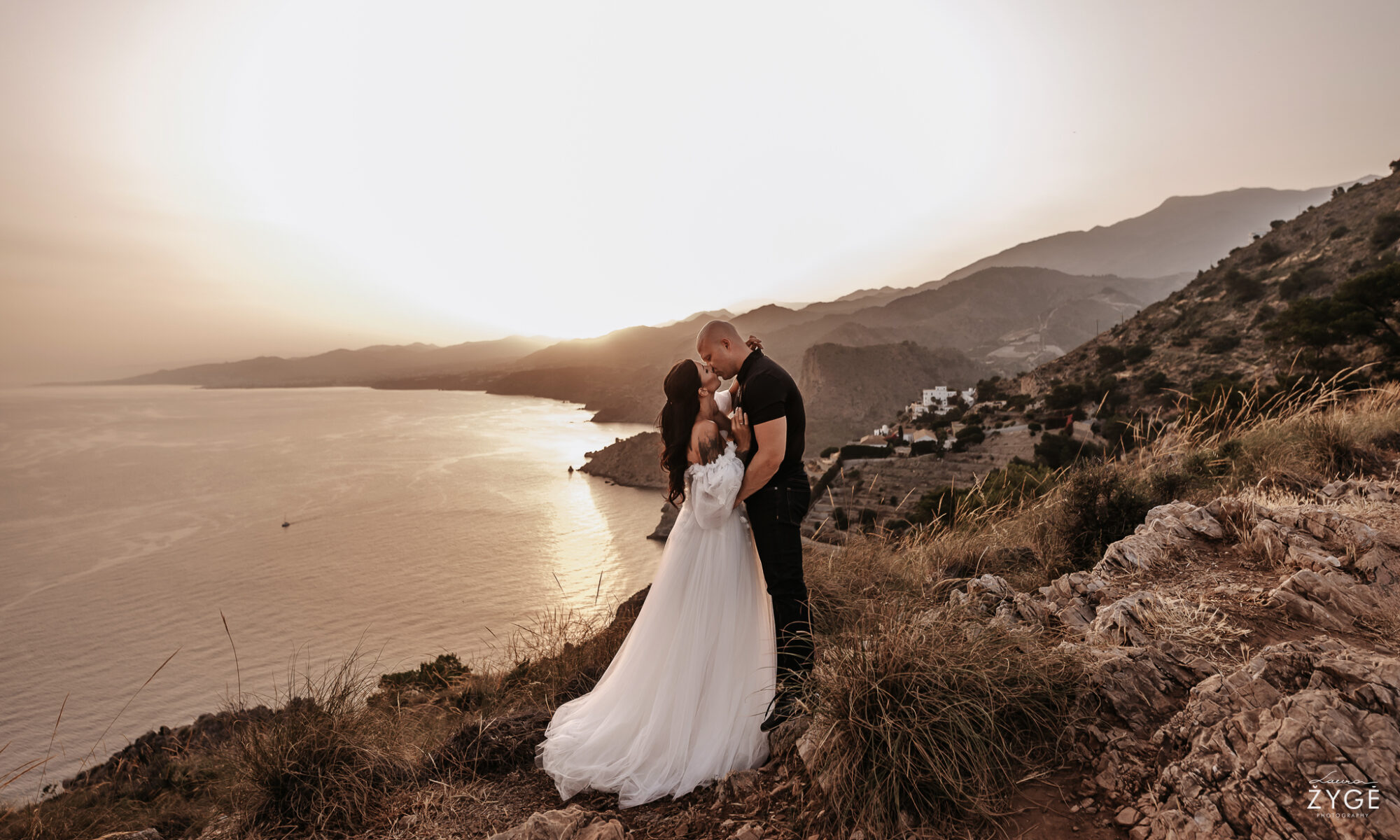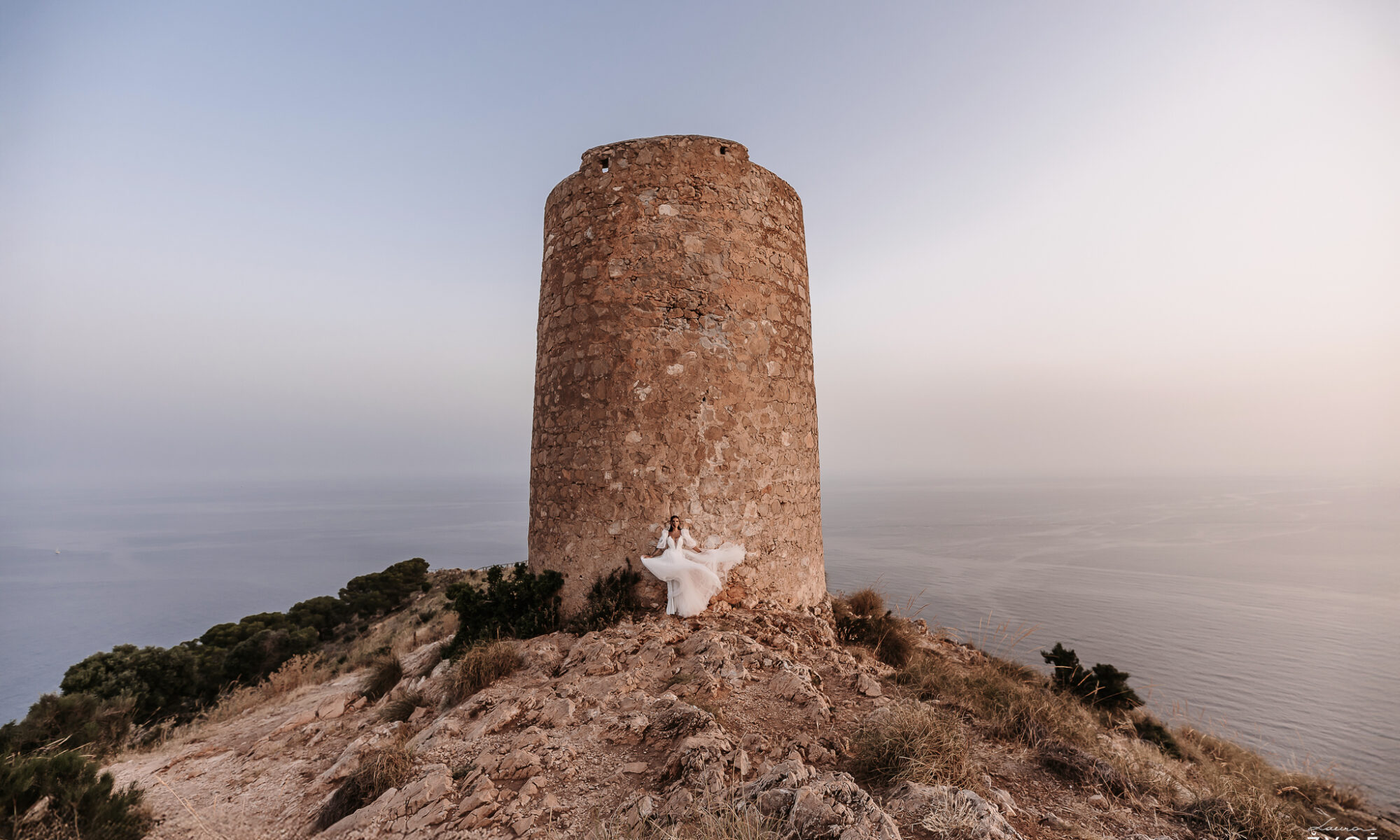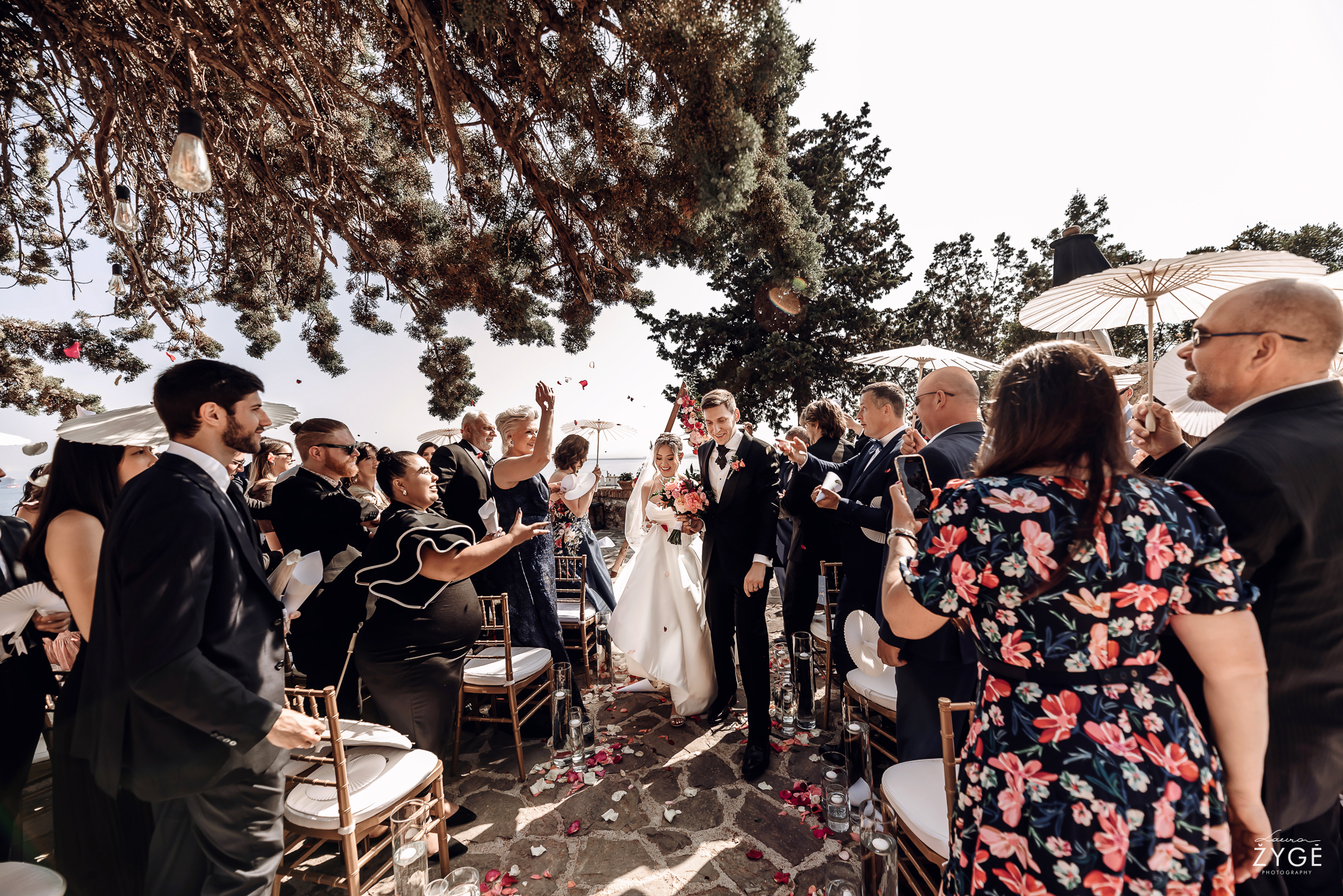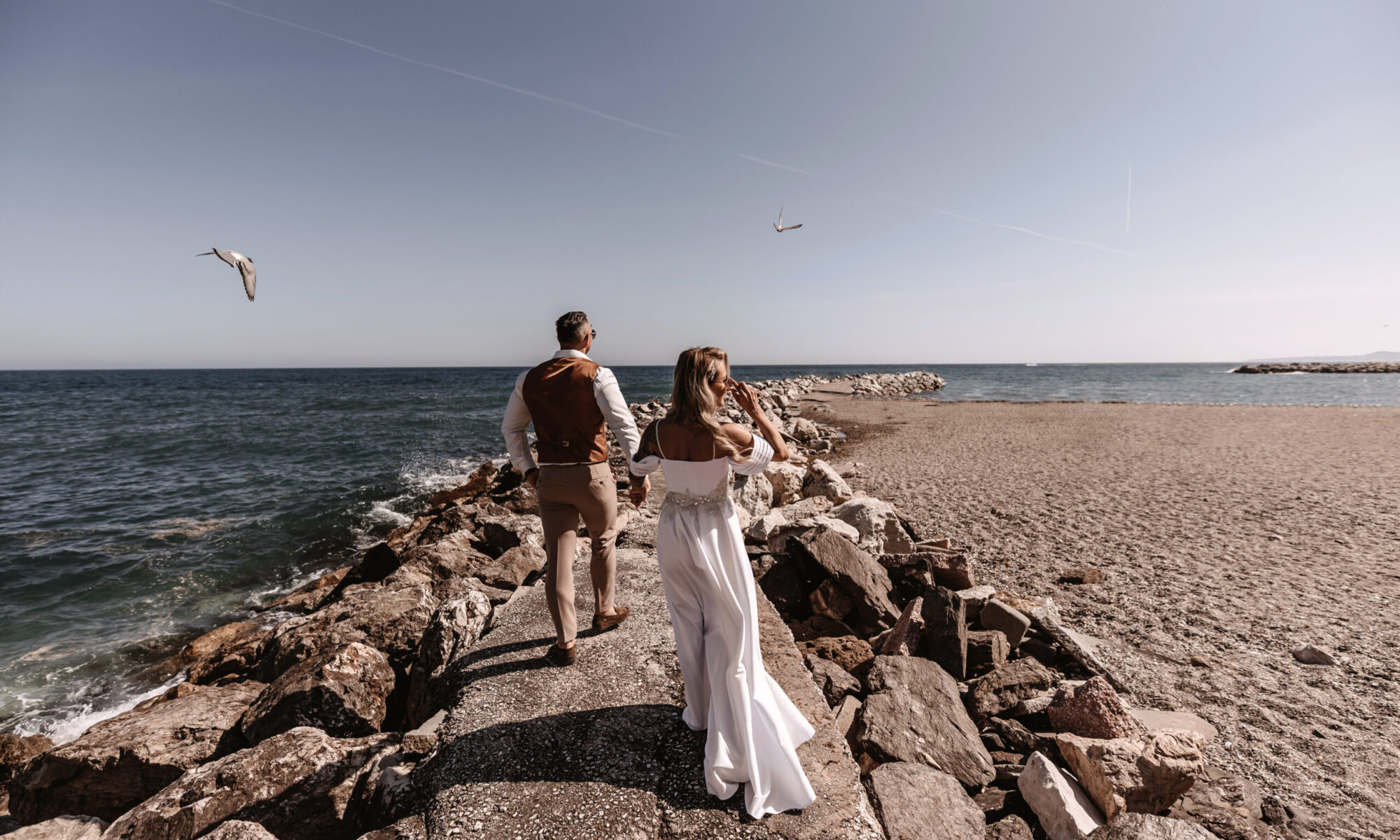Destination weddings – Weddings in Spain
Dreaming of a wedding filled with sunshine, stunning views, and a one-of-a-kind vibe? More and more couples are choosing to celebrate abroad, and Spain is becoming one of the top picks. The charm of this Mediterranean country—its history, landmarks, and warm climate—creates the perfect backdrop for an unforgettable day.
In this in-depth guide you’ll find everything you need to plan your celebration in Spain—from the best locations to legal requirements, from local traditions to practical tips. Whether you’re picturing a cozy ceremony by the sea or a grand reception in a historic estate, Spain offers endless options for any size and style of wedding.
Why choose Spain for your wedding?
Spain stands out for its variety and flexibility, making it a fantastic wedding destination. You’ll find it all here—from spotless beaches to breathtaking mountain scenery, from modern resorts to historic castles and haciendas.
Looking for standout venues in Spain? Check out our carefully curated picks!
Planning a wedding in Spain: step by step
Organizing a wedding abroad can seem daunting, but with the right plan and advice the process becomes smooth and enjoyable. Here are the key steps for planning a wedding in Spain.
Required documents and legal basics
If a foreigner wants to marry in Spain, it’s important to know that official civil ceremonies for foreign nationals can be quite complicated. Many couples choose to do the civil ceremony in their living country and hold a symbolic or religious ceremony in Spain. If you do want a legally binding wedding in Spain, you may need:
- valid passports
- birth certificates (apostilled and translated into Spanish)
- a certificate of no impediment / marital status (apostilled and translated)
- proof that at least one of you has lived in Spain for at least 2 years (in some cases)
- an NIE number (foreigner identification number)
Because of bureaucracy, arranging a civil ceremony in Spain can be challenging, so many couples opt for symbolic ceremonies, which don’t involve legal paperwork.
Finding the right pros and venues
For a smooth destination wedding, reliable vendors are a must. Spain has many professional planners who specialize in weddings for foreigners and can help with:
- choosing the ceremony and reception venue
- catering and the wedding cake
- decor and florals
- photography and videography
- music and entertainment
- guest transport and accommodation
It’s best to pick a planner who speaks English and has experience working with international couples.
Spanish wedding traditions and local flavor
Spain is known for rich wedding traditions that can add an authentic local touch to your celebration. Blending Spanish customs with couple’s local elements creates a unique cultural mix your guests won’t forget.
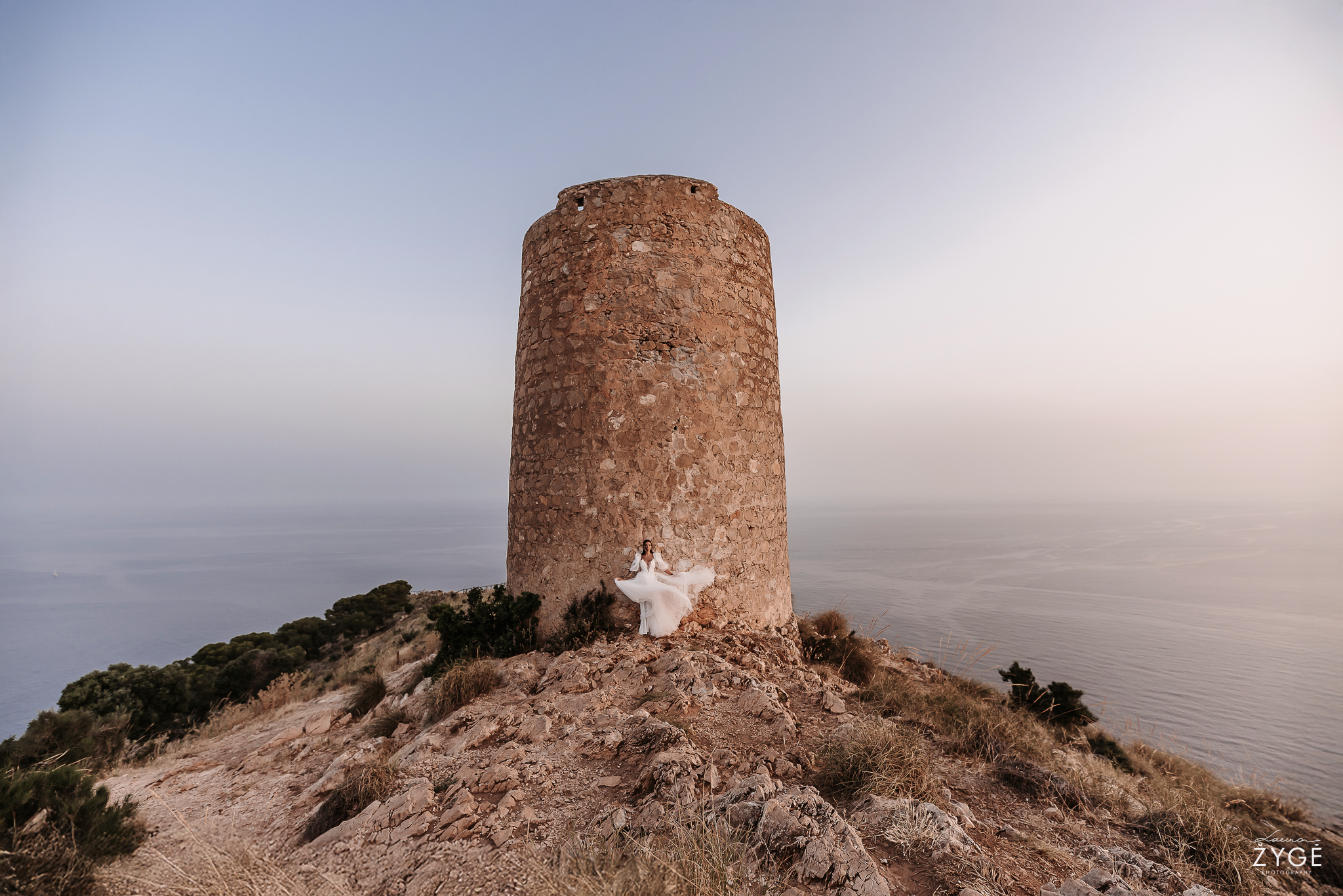
Popular Spanish wedding traditions
- Arras coins: during the ceremony the groom gives the bride 13 gold coins, symbolizing his commitment to provide for the family and share wealth.
- Mantilla: a traditional Spanish version of the bridal veil, often made of lace.
- Orange blossoms: a classic element in the bridal bouquet, symbolizing purity and fertility.
- Lazo: a cord or ribbon placed around the couple’s shoulders during the ceremony to symbolize their union.
- Flamenco and sevillanas: traditional dances often included in the evening program.
Food and drinks play a big role too—dishes are often served tapas-style, guests can enjoy sangria, local wines, and of course the famous paella. Parties run late—Spanish weddings commonly wrap up at dawn with churros for breakfast!
Want authentic Spanish decor for your day? Get in touch with our professional wedding stylists!
Overcoming challenges: tips for a smooth celebration
While a wedding abroad can seem complex, good prep helps you avoid most issues. Here are a few practical tips to keep things running smoothly in Spain.
Bridging the language gap
Not everyone in Spain speaks English, especially in smaller towns. We recommend:
- hiring a bilingual wedding planner
- using an interpreter for key vendor negotiations
- preparing a few basic Spanish phrases
- having a “Spanish contact”—a local friend or colleague who can help if needed
Weather and seasonality
Spain is famous for great weather, but region and season matter. In summer—especially July–August—the south can be extremely hot (temperatures often reach 40°C), while the north can be unpredictable. Spring and autumn are usually ideal across the country.
Logistics
Destination weddings require extra logistics:
- arrive at least a week before the ceremony to handle final details
- create a clear transport plan for guests: how to reach the ceremony, reception, and return to their hotels
- consider group airport transfers
- have a Plan B for every key element, especially for outdoor ceremonies
Budget management
Weddings in Spain can be budget-friendly or ultra-lux—your choices set the tone:
- a smaller guest list cuts most costs
- off-season dates are often much cheaper
- smaller towns offer better prices than major tourist hotspots
- local products (wine, fruit, olive oil) can be more economical than imports
Best wedding locations in Spain
Spain offers an incredible range—from sunny beaches to dramatic mountains, from historic castles to sleek hotels. Here are a few of the most popular areas:
Andalusia
The south is known for its warm climate, Moorish architecture, and vibrant culture. Popular spots include:
- Marbella – luxury resorts and villas with Mediterranean views
- Seville – historic palaces and gardens with a truly Spanish feel
- Granada area – countryside estates with stunning Sierra Nevada views
Catalonia
Northeast Spain brings striking Mediterranean coastlines and a modern, cosmopolitan feel:
- Barcelona – chic hotels and historic buildings in the heart of the city
- Costa Brava – dramatic beaches and charming small resort towns
- Girona province – medieval castles and traditional Catalan masias (farmhouses)
The Balearic Islands
A Mediterranean archipelago with unique beauty and atmosphere:
- Mallorca – gorgeous villas with sea views and authentic mountain villages
- Ibiza – boho-style weddings on white beaches and in luxe private estates
- Menorca – a calmer choice with natural beaches and an authentic vibe
Wedding costs in Spain
One of the most common concerns about marrying abroad is the price tag. The truth is, weddings in Spain can be done on a budget or as a splurge—it’s up to you.
On average, weddings in Spain may cost:
- Smaller, intimate weddings (up to 30 guests) – from €5,000 to €10,000, including venue, catering, decor, and core vendors
- Mid-size weddings (30–80 guests) – from €10,000 to €30,000
- Large or luxury weddings (80+ guests) – from €30,000 and up
Note that travel and accommodation for guests aren’t included here—those are usually covered by the guests themselves.
How to save
If you want to trim the budget for a Spanish wedding, consider:
- planning in the off-season (November–March, excluding holidays)
- choosing a weekday instead of a weekend
- picking smaller, lesser-known towns or areas
- using local, seasonal products for food and decor
Many couples find that a wedding in Spain can actually be more affordable than in their country—especially with a shorter guest list and no need for a large venue.
Before you go
The last months and weeks before flying to Spain are just as important as the early planning stage. Make sure to:
- Check documents – passports, visas (if needed), insurance policies, and any paperwork required for the wedding
- Health cover – get the European Health Insurance Card and extra travel insurance
- Communication plan – ensure your phone will work in Spain; consider a local SIM
- Transporting outfits – carry wedding attire in hand luggage or special garment bags; check airline rules
- Guest info – prepare a detailed guide for guests with all travel, lodging, and wedding details
It’s also worth reading up on local customs, climate, and other practical details that could affect your day.
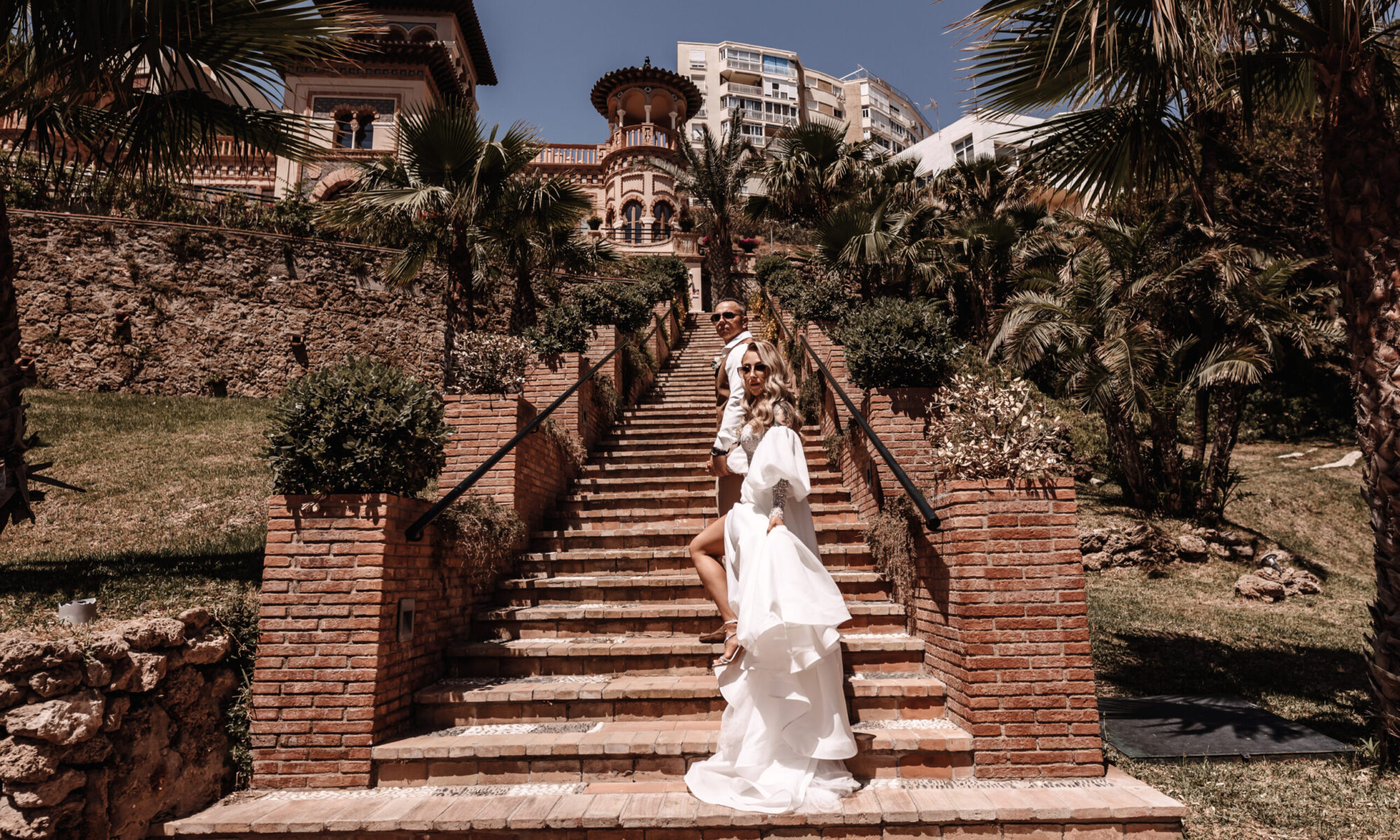
Summary
A wedding in Spain can be an unforgettable adventure that blends sunshine, sweeping views, and Spanish passion. While it takes extra planning, the result is a unique celebration you and your guests will remember for life.
Unlike traditional weddings, marrying in Spain lets you turn the celebration into a multi-day experience—combining your ceremony with a holiday on the sunny Mediterranean coast.
Whether you go for a laid-back beach ceremony or a luxurious party in a historic estate, Spain offers ideal conditions to bring your wedding vision to life. With the right team, careful planning, and an open mind to local traditions, your Spanish wedding will truly be unforgettable.
Frequently asked questions
What documents do foreigners need to get married in Spain?
You’ll need valid passports/ID cards, birth certificates, a certificate of marital status, and possibly proof of legal residence (depending on the ceremony type). Always check the latest requirements with the local Spanish registry office.
How much do weddings in Spain usually cost?
Depending on the location, guest count, and services, couples spend from about €5,000 for intimate events up to €30,000 and more for luxury, all-inclusive celebrations.
Can we have a legally valid ceremony in Spain, or is it easier to handle the paperwork in our residence country?
Both options are possible. Many couples find it simpler to do the legal paperwork in residence country and hold a symbolic or religious ceremony in Spain.
